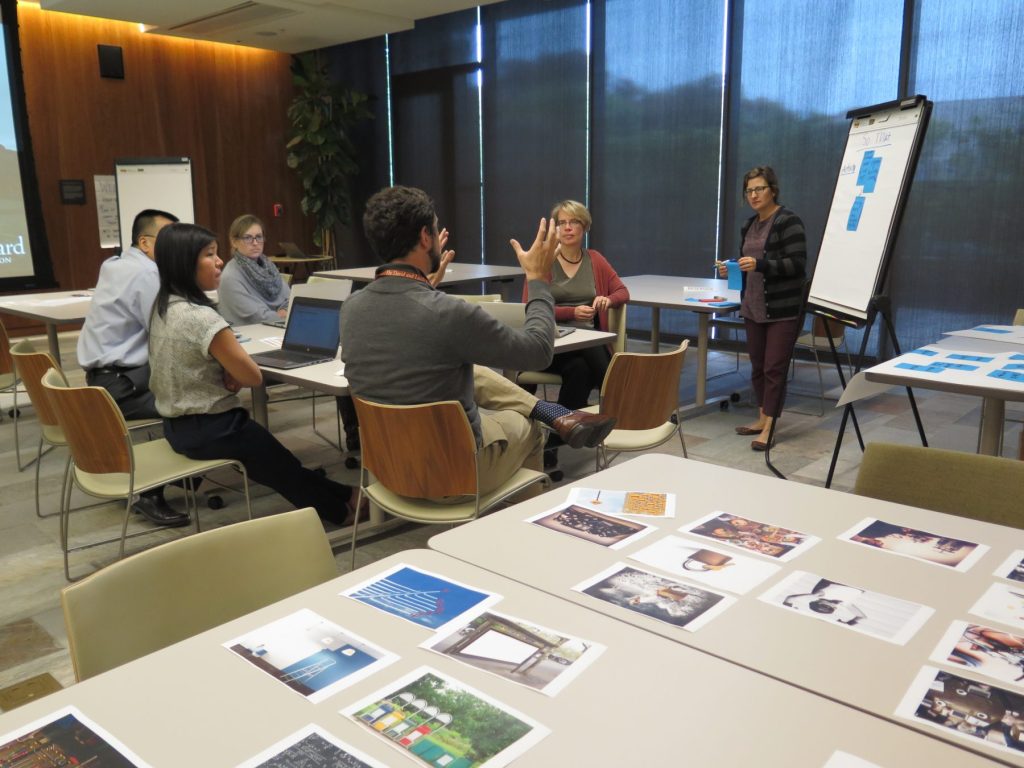As part of the Packard Foundation’s ongoing efforts to improve our work, the Foundation has solicited anonymous feedback from grantee partners since 1996. After feedback indicated we needed to improve interactions between grantees and Foundation staff, the Foundation created our first Grantee Experience Standards (GES) in 2007. These original four standards were transactional in nature, emphasizing the need for open communication and responsiveness from Foundation staff.
Much has changed since then. Beyond being open and responsive, today we seek to develop relationships that are rooted in ongoing dialogue and are sensitive to our grantee partners’ needs, experiences, input, and feedback. We are also working to address funder-grantee power dynamics, and how they can affect goals of equity and inclusion.
The updated standards are the product of a months-long collaborative effort involving staff from across the Foundation, dialogue with Measurement, Evaluation, and Learning consultants and peer foundations, and a process of extensive outreach to and feedback from grantee partners. Going forward, grantee feedback on how well Foundation staff are fulfilling these standards will serve as the basis by which we judge our success at building and sustaining relationships with grantees.
Updated Grantee Experience Standards
- Respect – Grantees feel Foundation staff value grantee expertise and time, and approach funder‐grantee power dynamics with humility and openness.
- Engagement – Grantees feel they have opportunities to meaningfully engage in two-way dialogue with Foundation staff about our shared work.
- Strategy – Grantees feel they understand how their work connects to the Foundation’s strategy, how strategies evolve over time, and how to share input on those strategies.
- Information – Grantees feel Foundation staff are thoughtful about asking for and sharing information, data, and feedback, and are transparent about how and why it is used.
- Process – Grantees feel they understand the Foundation’s grant requirements and processes.
- Responsiveness – Grantees feel Foundation staff provide timely responses to grantee questions.
How did the Foundation go about updating these new standards?
Keeping in mind the emphasis on collaboration and open dialogue, the process of refining the new GES involved significant and repeated outreach to grantee partners for feedback. We attempted to balance the risk of burdening our grantee partners with a genuine desire to be inclusive, ultimately surveying multiple staff from a balanced sample of grantees with current or recently closed grants so we could hear from organizations at different stages of the grant lifecycle.
To kick off the effort of updating the GES, roughly two dozen staff from across the Foundation reviewed the last 10 years of feedback from Grantee Perception Reports and incorporated feedback from a handful of grantees before drafting a new set of standards.
The new draft standards then underwent significant testing and discussion with grantee partners, including two rounds of survey testing through the Center for Effective Philanthropy. In this phase, we solicited feedback from hundreds of grantees, and conducted a series of 22 in-depth interviews for further insights. You can read CEP’s executive summary and full report here.
Key Learnings
Participating grantee partners reported an overwhelmingly positive response to the new Standards, saying they were “moving the needle in the right direction,” and “extremely thoughtful and inclusive.” According to many of them, the new standards are comprehensive and strengthen their existing positive feelings about the Foundation. Grantees also reported that their involvement in the process was a positive experience, and sent a signal that the Foundation is prioritizing grantees and their needs.
Grantees also reported that they perceived Respect as the most important standard, and a determining factor for a successful experience with the Foundation. “One of the things that struck me right off the bat was that the word ‘respect’ was at the top,” stated one employee of a grantee in an interview. “That sets an amazing tone for how the Foundation views their own culture and their culture in connection to their grantees.”
Grantees also suggested that that they perceive Engagement, both with the Foundation and with other grantees, as an important part of a positive grantee experience. As one grantee put it: “As grantees, we can learn better ‘from the field’ if we know how to contextualize our work and seek allies and partners that fit within a presumably coherent Foundation strategy and set of grantees.”
Looking Ahead
Thanks to early grantee feedback gathered through this process, efforts are underway to improve our practice against these new standards. In particular, there is an opportunity to provide better guidance on how grantees can give input on strategies, and for the Foundation to share how collected information, data, and feedback is used. Moving forward, these standards will be built into the Foundation’s ongoing feedback and reflection processes, and how we train and evaluate Foundation staff.
We hope that the new GES will help to reinforce to our grantee partners that we wish to have a deep and mutually responsive relationship. We also hope that these standards will lead to even more input and frank feedback from our grantees. And we hope that future feedback we receive will further illuminate us as we persistently strive to evolve and improve.









